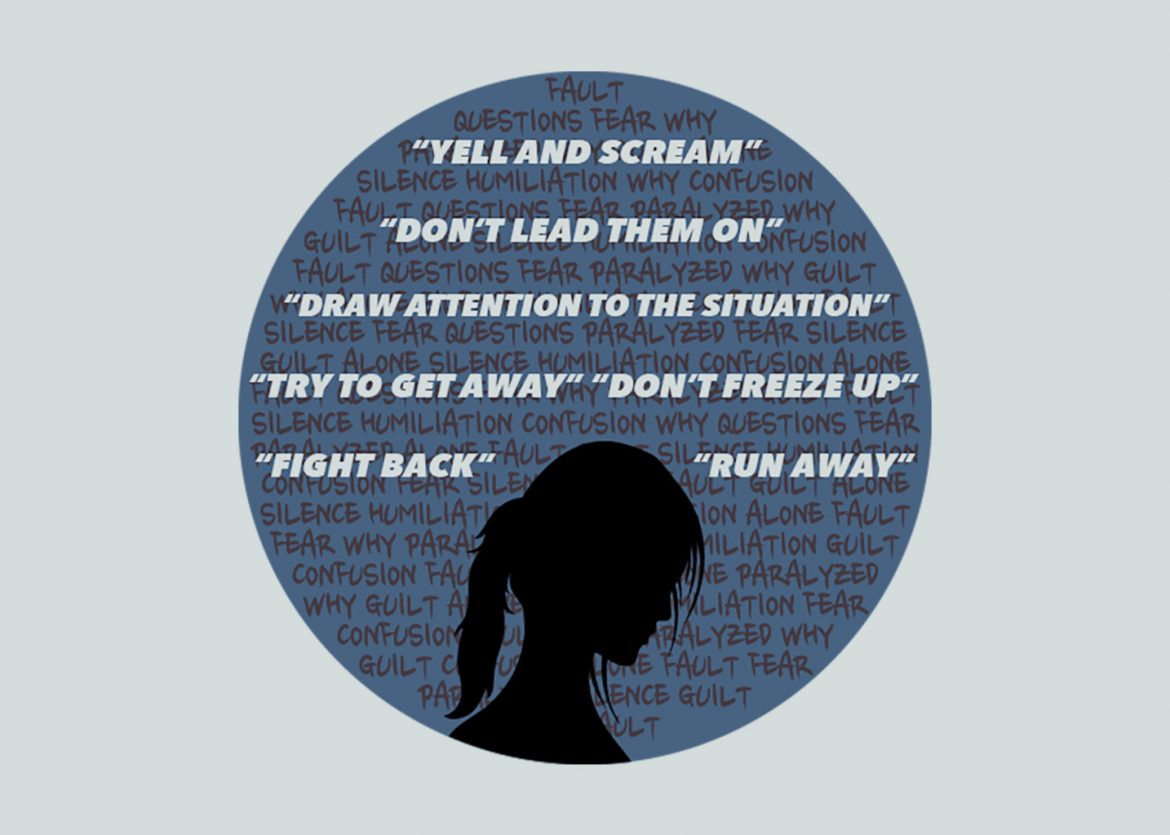Sexual assault can happen to anyone, anywhere. Victims often feel as if it is their fault, but only the abuser is responsible for inflicting the abuse. Graphic by Paulina Hafer.
Managing Editor Delia Adamson tells her story about dealing with sexual harassment and conversations that happen within the classroom.
It’s January 2018 and I’m sitting in my AP English Literature class. I am an 18-year-old senior in high school being taught about consent and coercion as part of the Family Life And Sexual Health (FLASH) curriculums.
My peers sit around me as we read different fictional scenarios and are asked how we would react to them.
“Well, the girl could yell if the guy is holding her down, but what if she doesn’t want to draw attention to herself or the situation,” a classmate asks.
I find that my eyes are welling up with tears and my hands are beginning to shake without knowing it. I grit my teeth, stay out of the conversation and just listen.
In my mind, the classroom has now transformed into the outside of my former workplace. I am helping the father of a family load his daughter’s birthday presents into their car. I continue to ignore the leering looks and inappropriate comments he has been making toward me since he arrived.
But I can’t ignore him backing me up against a wall and not letting me go.
I stood there paralyzed and did nothing.
I remember driving away and knowing that I would never set foot into that place again. I sent an email resigning that same night.
Of course, I made excuses. I blamed my resignation on family matters and a school schedule that ate up too much of my time. I told none of my friends, or my parents at first.
I was going to deal with it alone, like the rest of my problems. I don’t like to be a burden on people.
However, the truth came out in a conversation with my mother a couple of weeks later. From then on, the resources made available to me were endless.
But I still did not want to talk to anyone.
I was a victim of sexual assault, and it’s still hard to admit it to myself.
It’s January 2018 and I am sitting in my AP English Literature class. The bell rings, everyone rushes out of the door and my questions are still unanswered.
What if the victim doesn’t want to draw attention to the situation? What if they are too afraid to yell and scream like they have been taught? How do they make the assault stop?
I did everything that I was taught to do. I did not lead him on, I disregarded every word and action made toward me that day.
So why did I still fall victim?
